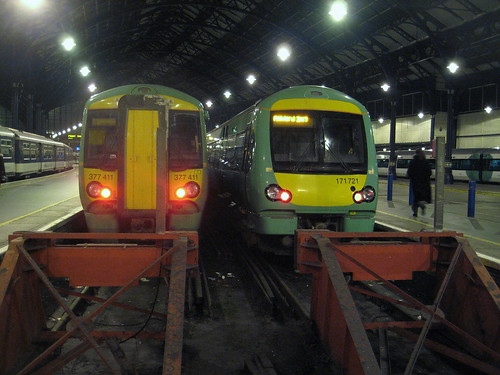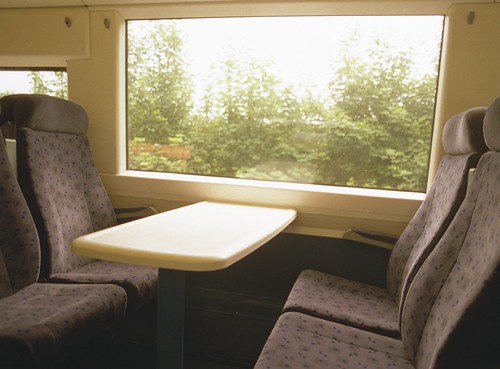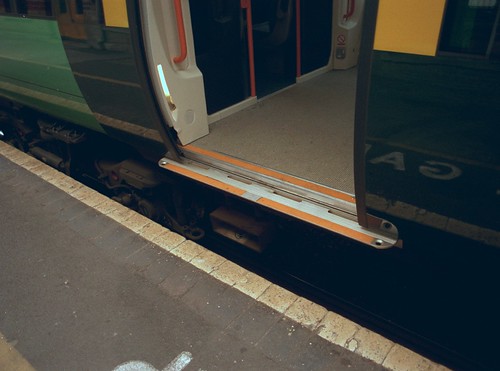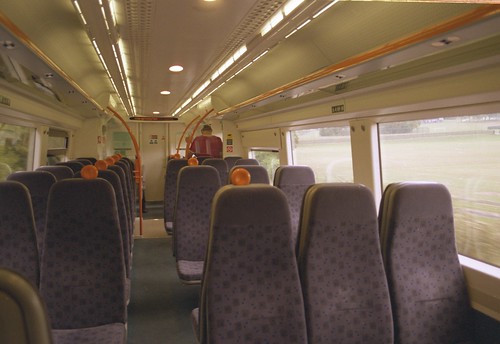


Electrostars, the EMU originally developed by AdTranz before it was taken over by Bombardier, are a mixed bunch. The first entered service around 2000 and comprise classes 357, 375, 376, 377, 378 and 379. Originally they were quite unreliable but they are now in the same league as the EPB units which they replaced, dating from the 1960s.
Variations include alternative seating layouts, sliding or plug doors, full width cabs or half-cabs with gangways (top picture), and AC, DC or dual voltage types.
Probably the most successful version is the class 378 for London Overground (second picture), which has sliding doors and longitudinal seating, an ideal layout for the type of service for which they are used.
Some versions are very comfortable, for example the end cars in the units operating on the Southern main lines (third picture) have 2+2 seating with tables, all aligned to the windows.
Much less satisfactory are the vehicles with 2+3 seating. The bodyshells are not wide enough for 2+3 seating, due to the way the bodysides are curved below the window, with the space being further cut into by ducts at skirting level. This reduces the width at floor level, so that passengers sitting by the window cannot put both feet on the ground straight in front of them, and the gangway is so narrow that special catering trolleys had to be obtained.
The reason for this curvature is not clear because the steps project beyond it, and platform levels are always well below the level of the bottom of the bodyside. It appears to be nothing more than a styling feature, and whilst it looks quite elegant, style should not be at the expense of space and comfort.

Another fault is that at concave platforms there is a large gap between the platform and the train. This is due to the position of the doors. The closer the doors are to the bogie centres, the less the gap at curved platforms. Trains such as the end-door class 158 are particularly good from this point of view.
The argument for locating the doors more centrally is that it improves station dwell times, but getting on and off Electrostars at some platforms at stations like Clapham Junction can be a bit of an adventure as there is a chasm to be negotiated. This cannot be good for station dwell time. There is a need for more research on this topic.
One way and another, the Electrostars would benefit from design changes to address these issues before further examples are built.


No comments:
Post a Comment